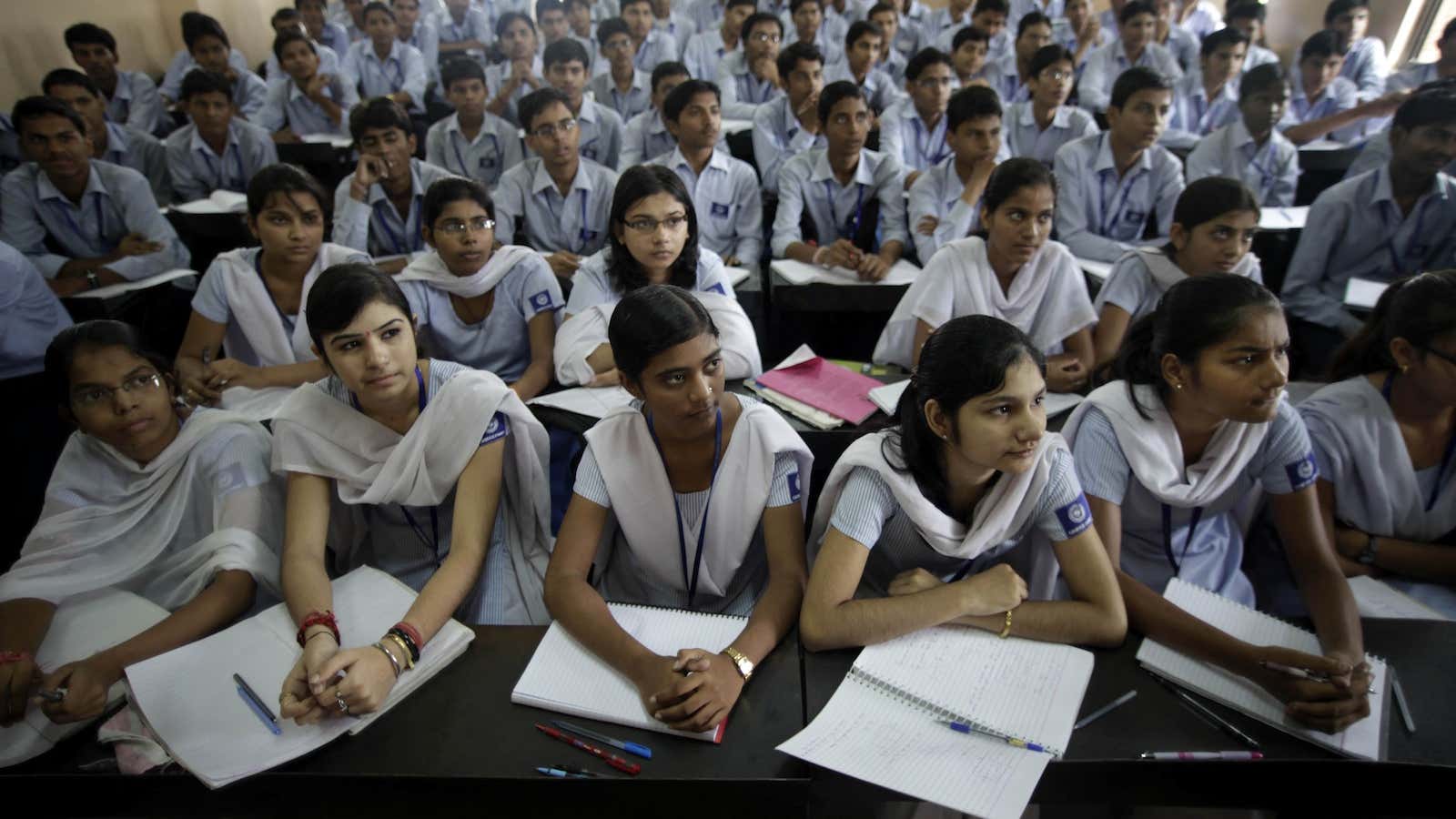In the summer of 2014, Pascal Plisson travelled to Bihar’s capital city of Patna to spend a week documenting classes at a coaching centre.
The well-known French director and writer was filming Super 30, a free coaching centre that prepares underprivileged Indian students for the joint entrance examination (JEE) for undergraduate engineering admissions in India. Students who clear the test can study at the Indian Institutes of Technology (IITs) or other highly ranked engineering colleges in the country.
During his time there, Plisson paid particular attention to Nidhi Jha, the third daughter of an auto-rickshaw driver in Varanasi and a student at Super 30, who cracked the JEE in 2014. He even travelled to her hometown to meet her family.
Now, a year later, Plisson’s 90-minute documentary is ready for release—hitting cinemas in France on Sept. 23.
Called Le Grand Jour—or The Big Day—the documentary chronicles the stories of four students from Uganda, Cuba, Mongolia and India.
“The film provides viewers a glimpse about the success story of four kids living in four different parts of the world. It shows how kids struggle in their daily life to make their way to triumph,” Plisson, who is known for the the award-winning documentary On the Way to School, told the Telegraph in 2014.
But this isn’t the first time that the 13-year-old educational programme in Patna has drawn a foreign filmmaker into its classrooms. The 85% success rate of students who crack the JEE every year after preparing at Super 30 has kept it in the spotlight since its establishment in 2002.
“Perhaps, they (filmmakers) are interested in showing the passion for learning even among the poorest, and how one opportunity opens the big window for them,” Anand Kumar, founder of Super 30, told Quartz.
“Besides, it also showcases the other side of India, where education is the main source of empowerment, and where parents are ready to make all the sacrifices for their children’s education.”
Jha, the subject of the French film, is now a student at the Indian School of Mines in Dhanbad, Jharkhand. Like her tutor, she too wants to become a professor of mathematics, and hopefully change the lives of the members of her family, who don’t even have a house of their own in Varanasi.
From Japan to the UK
From the Discovery Channel to the Japan Broadcasting Corporation, several television networks have produced and broadcast short films and documentaries about Super 30.
Yoichi Itoh, chief economist at STB Research Institute, was the first to make a film on Super 30 for the NHK Channel, in which he described the academy as “a secret weapon of India.” The Japanese actor and former beauty queen Norika Fujiwara followed by featuring Super 30 in her documentary about India’s information technology boom.
One of the biggest films, however, was a documentary on Super 30 that was shown in the Discovery Channel’s primetime slot.
“(The lesson is) if you want it enough, you can make it happen,” Veronica Hall, the producer of a 2008 Al Jazeera-commissioned film, Super 30, told Quartz. ”Most of these children didn’t speak English, even though the exams were held in English. They had left school to help provide for their families. The difference between them and those in the hothouses of coaching academies in Delhi and Mumbai was immeasurable.”
Directed by British filmmaker Christopher Mitchell, Super 30 followed the year-long cycle of the batch of 2007 as they moved from their villages to become India’s future engineers.
“The most fascinating is the unbelievable and the unshakable faith of Anand in the ability of so many who, due to their circumstances, were unable to access the higher education they so obviously deserved,” Hall said. ”In one of the open evening classes that Anand ran in Patna (not the Super 30 group), 200 teenagers turned up for what was, in effect, a class in a bicycle shed. You could hear a pin drop.”
That film won the 2008 Audience Choice Award for Best Documentary Film at the Indian Film Festival in Los Angeles. Besides being shown once at primetime, there were three repeat telecasts on the Discovery Channel, in both English and Hindi.
